Lower Blackwood Landcare
Monitoring & Feed budget
13 March 2023
 Judi Earl
Judi Earl
Feed budget
Pasture growth Animal requirements Series3
0 10 20 30 40 50 60 Jan Feb Mar April May June July Aug Sept Oct Nov Dec P a s t u r e g r o w t h a n d s t o c k i n g r a t e ( k g D M / h a / d a y )
Feed budget
0 10 20 30 40 50 60 70 80 Jan Feb Mar April May June July Aug Sept Oct Nov Dec P a s t u r e g r o w t h a n d s t o c k i n g r a t e ( k g D M / h a / d a y ) Pasture growth Animal requirements Series3
How to estimate herbage mass
Measure pasture height in centimetres
Pasture height = 10 cm


Estimate pasture density
Very low Density = 200 kg DM/ha/cm
Ground seen through sparse pasture

Low Density = 250 kg DM/ha/cm
Ground occasionally seen through average pasture

Average Density = 300 kg DM/ha/cm
Ground not visible through average pasture

High Density = 400 kg DM/ha/cm
How to estimate herbage mass
Multiply pasture height x density

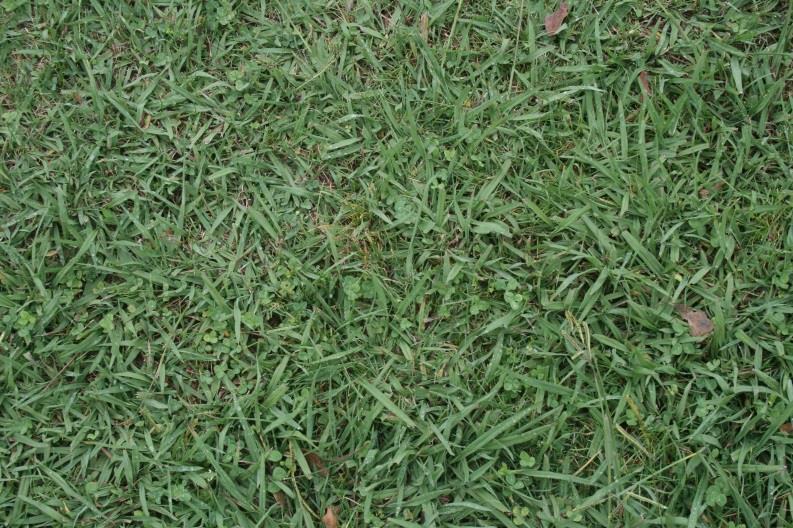
Pasture height = 10 cm Density = 300 kg DM/ha/cm Herbage mass = 10 x 300 = 3,000 kg DM/ha
Additional considerations
• Herbage mass – percentage edible
• Percentage green
• Groundcover
• Contribution of plant types to herbage mass
• Perennial grasses - Annual grasses
• Legumes - Forbs
• Diversity of desirable (perennial) grasses
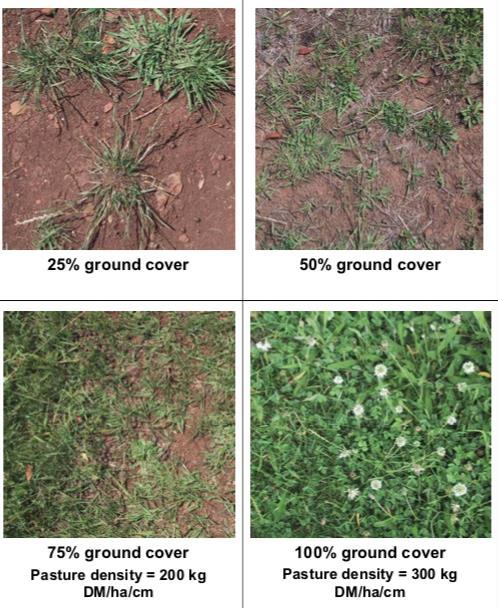
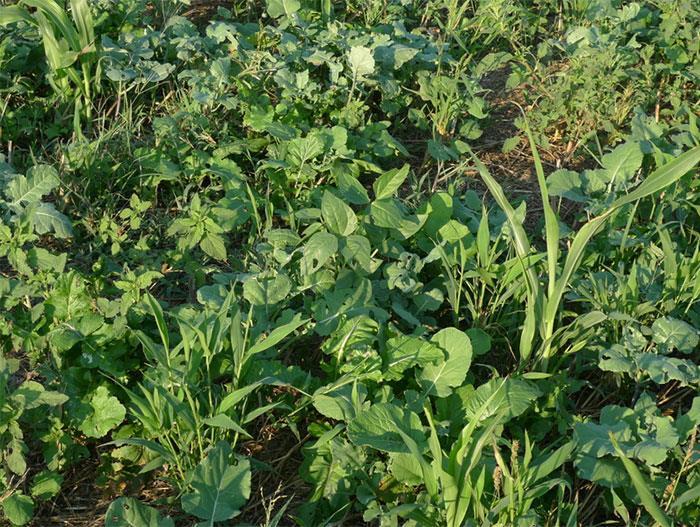
Broadleaf component 10 - 15% Legume component 15 - 25% Annual grass component 10 - 15% Perennial grass component 60 – 80%
Calculation of pasture growth rate
Example:
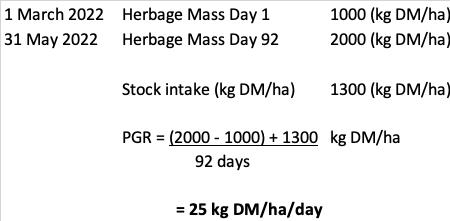
Feed budget


Number of stock

Plan residual herbage

Plan utilisation

Pasture production targets

Animal production targets

Plan and control grazing
Feed budget - critical dates
‘Normal’ season critical dates
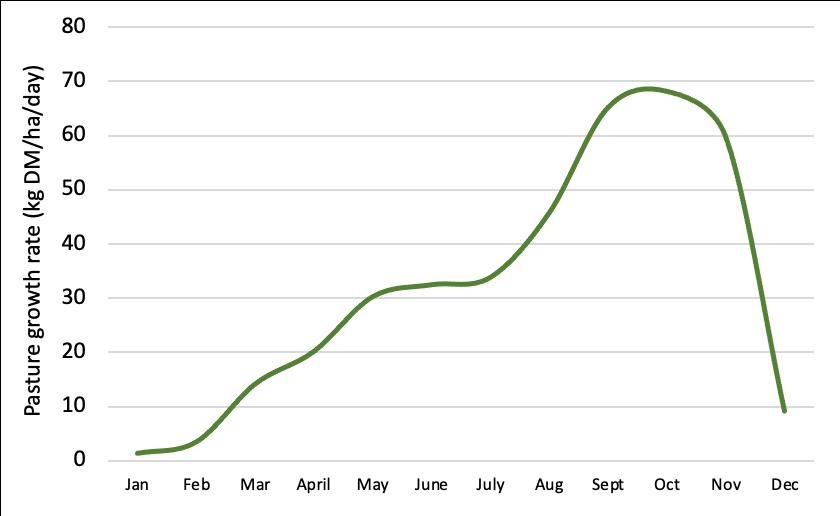
Things needed for a feed budget
Estimate
• Grazeable area
• Herbage mass
• DSE values – stock requirements
• Pasture growth rate Set
• Minimum herbage mass – residual targets
DSE values
Dry Sheep Equivalent 1 DSE eats 1 kg of pasture each day
DSE ratings for cattle
Weight of cow (kg) 400 dry 7.5 400 pregnant early 8.0 400 pregnant late 9.5 400 lactating early 14.0 400 lactating late 17.0 500 dry 9.5 500 pregnant early 10.0 500 pregnant late 11.5 500 lactating early 16.0 500 lactating late 19.0 Pregancy/ lactation DSE rating
Feed
budget - how many stock (DSE) can you carry Information required:
1. Farm area (ha) 4. DSE rating for stock type 2. Length of period (days) 5. Herbage mass at start of period 3.Type of stock during period 6. Desired herbage mass at end of period Example Your data Farm area (ha) 250 F Farm area (ha) Start of period (date) 1/11/21 Start of period (date) End of period (date) 30/4/22 End of period (date) Length of period (days) 180 C Length of period (days) Start herbage mass (kg DM/ha) 3000 A Start herbage mass (kg DM/ha) Desired end herbage mass (kg DM/ha) 2000 B Desired end herbage mass (kg DM/ha) Pasture growth rate (kg DM/ha/d) 0.0 D Pasture growth rate (kg DM/ha/d) Available feed (kg DM/ha/d) 5.6 Available feed (kg DM/ha/d) Type of stock pregnant ewes Type of stock DSE/head 1.1 E DSE/head Number of stock units/ha 5.1 Number of stock units/ha Number of stock units 1263 Number of stock units Available feed = [(start herbage 'A' - end herbage 'B') ÷ length of period 'C'] + pasture growth rate 'D' Number of stock/ha = (available feed ÷ DSE per head 'E') Number of stock units= (number of stock units/ha x paddock area 'F')
Feed budgeting
• The process aids decision making about selling, keeping or feeding livestock
• how much pasture is available
• how much pasture needs to remain
• what’s the likely pasture growth
• Calculate feed budgets using this information
• how many animals can I carry and for how long
Grazing plan – feed budget based AIMS graze plan calculator
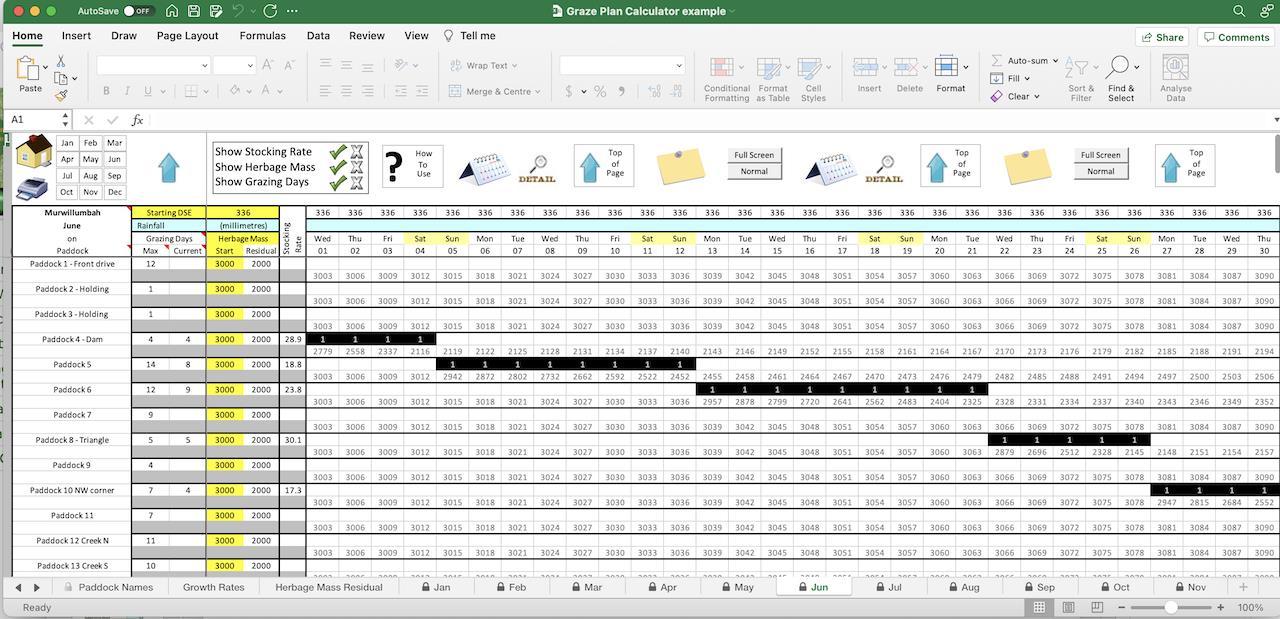
www.aimsag.com.au/software Excel spreadsheet & Guide to use the calculator
 Judi Earl
Judi Earl

 Judi Earl
Judi Earl


















